Tasmania is already home to 160 licensed wine producers and about 70 distilleries. But there are new projects in the wings and ready for their first vintage. CHECK OUT THESE EXCITING 10.
Whether it’s Pontville’s Shene Distillery having the world’s first gin to win a platinum award two years running at the San Francisco International Spirits Competition or Ed Carr from House of Arras nabbing the coveted title of Australia’s Best Sparkling Wine for three years running, Tasmania’s winemakers and distillers continue to shine on the world stage.
Tasmania is home to 160 licenced wine producers and has long been known for pinot noir, chardonnay and riesling, but in more recent years it’s sparkling wines where Tasmania is really excelling.
Our fizz is lauded as being up there with the top drops being produced in Champagne, France.
Tasmanians’ taste for the finer things in life has also resulted in huge growth in gin and whisky, which for more than 150 years was a non-existent industry here.
In 1839, Lady Franklin outlawed distilleries in Van Diemens Land.
In the 1980s, Bill Lark succeeded in overturning a federal law and filled his first barrel from a 75-litre still in 1992. This paved the way for every Australian boutique distiller who has come along since.
The daughter of the “godfather” of Australian whisky, Kristy Lark-Booth, started production at her own Hobart distillery in 2016 – becoming the country’s first female owner-distiller.
Growing up with a still outside her childhood bedroom on Killara Way, Kingston, she pays homage to her roots with Killara Distillery at Goodwood with a 600-litre still.
Now, she is set to open a cellar door for the first time.
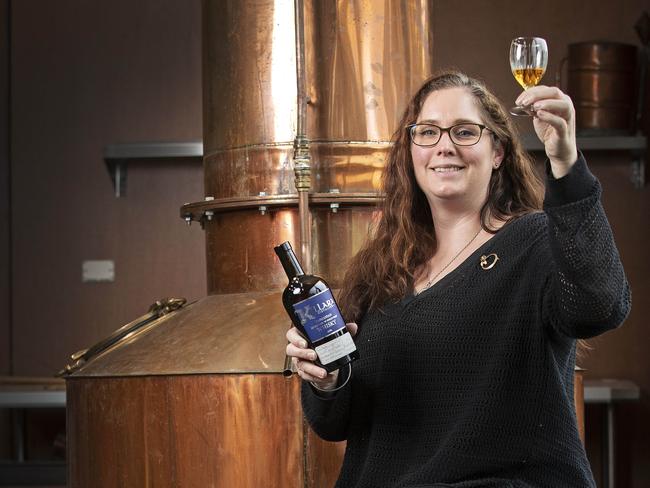
Based at picturesque Richmond, doors are expected to open to the public for the first time by the end of this month.
“We will be growing the barley for our whisky and the botanicals for the gin on site and there will be an orchard with seasonal fruit for liqueurs,” Ms Lark-Booth said.
All Killara’s products will be available for tastings, with live music and food vans planned once a month on Fridays.
Ms Lark-Booth estimated there were now around 70 distilleries in the state.
“It’s a bit surprising to see the number of new projects popping up around the time of the pandemic,” she said.
“But the local industry has always been great about supporting up and comers and sharing their wealth of knowledge.”
Even in these uncertain economic times, there are a number of new proposals and expansions planned across the state.
Here are some of them:
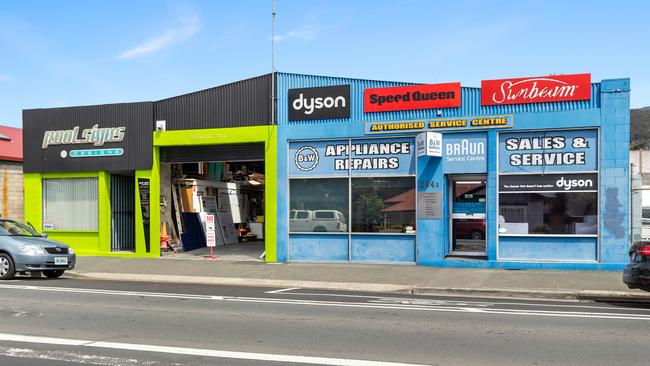
VSC DISTILLERY
Hobart City Council approved plans for the $2m Argyle Street whisky distillery development on September 21.
The development, slated for the site of a former small appliance sales and service centre at 284 Argyle Street, would offer cellar-door tastings, bar snacks and seating for up to 47 people.
The distillery would operate from 7am to 7pm and the tasting room from midday to 10.30pm.
The new business is headed up by Rob Kingston and fellow experienced business partners in the wine and spirits field – Nathan Reeves and David Chatfield.
But residents across from the proposed site have appealed, citing trading hours concerns and insufficient detail in the application prospectus.
A preliminary appeal hearing was scheduled for last week.
IKON DISTILLERY
Burnie City Mayor Steve Kons – also a current bottle shop, hotel and property owner – lodged a submission earlier this year asking the Premier’s Economic and Social Recovery Advisory Council for the funds to buy equipment for his proposed Tasmanian Ikon Distillery venture.
The venture would be developed in a landmark brick building on Burnie’s former pulp mill site and Ald Kons would put up $4.2m of the $6.2m total needed.
In the submission, he said the project was dependant on a government loan to support the acquisition of equipment.
The business plan said the Tasmanian Ikon distillery would produce 144,000 litres of beer per annum along with 163,000 litres of gin and vodka and 80,000 litres (or 400 barrels) of whisky.
Ald Kons said last week the project was shovel-ready.
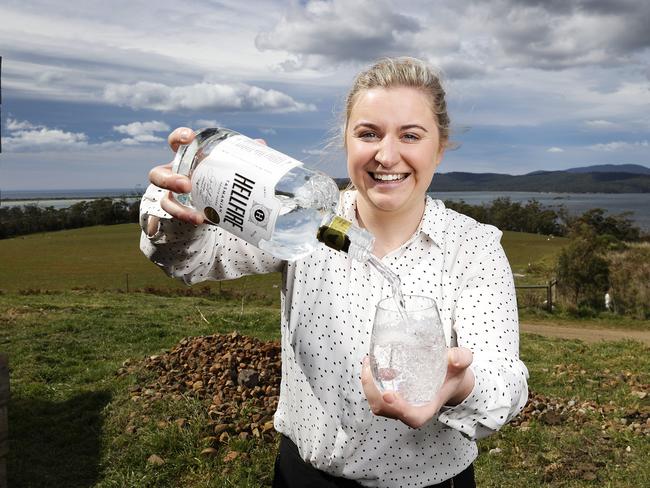
TASMAN WINE AND SPIRIT TRAIL
Launched last month, this new trail includes Nonesuch Distillery, Cape Bernier Vineyard, Hellfire Bluff Distillery, Bangor Vineyard Shed, Impression Bay Distillery and McHenry’s Distillery.
Visitors can drop into the six boutique wineries and artisan distilleries during a trip to the state’s southeast coast.
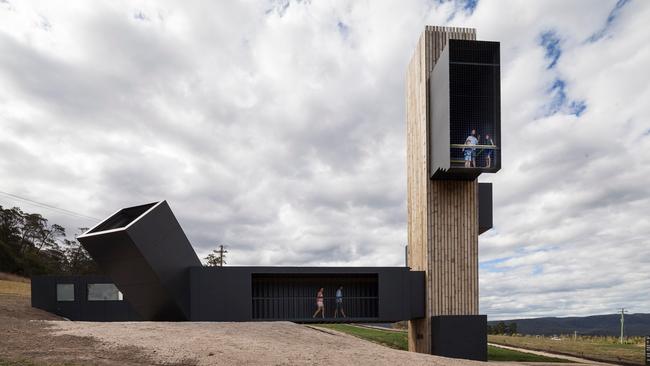
DEVIL’S CORNER EXPANSION
In December 2012, Victorian wine company Brown Brothers opened the Devil’s Corner cellar door outlet at Apslawn, between Swansea and Bicheno, overlooking Great Oyster Bay and the Hazards.
The company recently had a $1.2m development application approved by the Glamorgan Spring Bay Council to expand its visitor centre and cellar door operation.
Under the company’s proposal, the cellar door and food spaces will almost double in size.
An application written by architect Peter Walker of Hobart firm Cumulus Studio said the extension was sought to better cater to current demand and forecast growth under its five-year vision.
BOOMER CREEK WINERY EXPANSION
Boomer Creek Vineyard’s cellar door only opened for the first time on the June long weekend as the first pandemic restrictions were lifted.
The team has now submitted a development application to the council to be able to sell the wines made at the property by the glass and bottle for consumption on site, as they are currently available only for tastings and takeaway sales.
The application also seeks permission to sell boutique Tasmanian-made and owned beer, plus there are future plans to have food vans and travelling musicians for pop-up events.
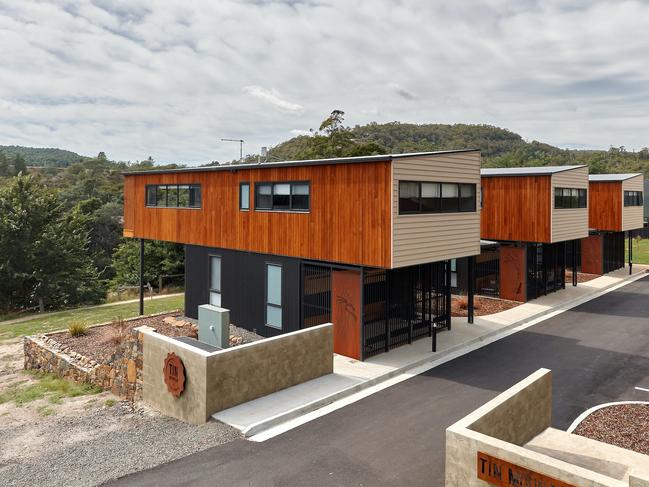
TIN MOUNTAIN GIN
Tim Kemsley and Kate Brown from Tin Mountain Gin, based in mountain-biking hotspot Derby, have two new ventures they hope to have open to the public early next year.
Tim is working on a brewery and bar which will be located on site with the Tin Mountain boutique accommodation, which opened late last year to cater to visitors to the Blue Derby trail network.
Kate’s project is a gin distillery, which will also be based in Derby, with a site almost secured.
HELLYERS ROAD DISTILLERY EXPANSION
Work started earlier this year on a $1m expansion at Tasmania’s largest single malt whisky producer, as international orders ramped back up post pandemic lockdown.
Hellyers Road Distillery general manager Mark Littler said the construction of an extended bottling hall and administration centre at its Burnie site would not only boost production but also provide a better visitor experience.
The extension to the bottling hall will allow Hellyers Road to produce more alcohol in less time and there will be a VIP tasting area where whisky lovers can create their own flavour profile from the available range of spirits.
Work on the bigger bottling hall and new administrative centre is expected to be completed by the end of the year.
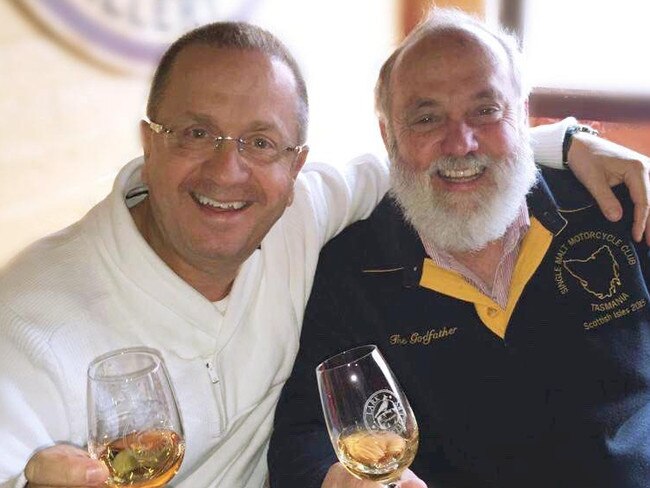
CALLINGTON MILL DISTILLERY
Sydney developer John Ibrahim is behind the $14m whisky distillery tipped to fuel the tourism engine of Oatlands for years to come.
Located at the historic Callington Mill site, the single malt distillery will have the capacity to produce 400,000 litres per year if demand is high.
It is due to open early next year, with a restaurant and cellar door also slated for the revamped site.
Two copper pot stills fabricated by Stillsmiths Tasmania in Westbury arrived on the site just last week.
CHARLES REUBEN ESTATE VINEYARD AND DISTILLERY
Run by Louise and Jens Volkmann at Tea Tree in the Coal River Valley, Charles Reuben Estate now has a new cellar door, which is open for tastings by appointment.
The company produces brandy from local apricots, cherries and raspberries, and is in the process of distilling wine for a traditional brandy.
jessica.howard@news.com.au
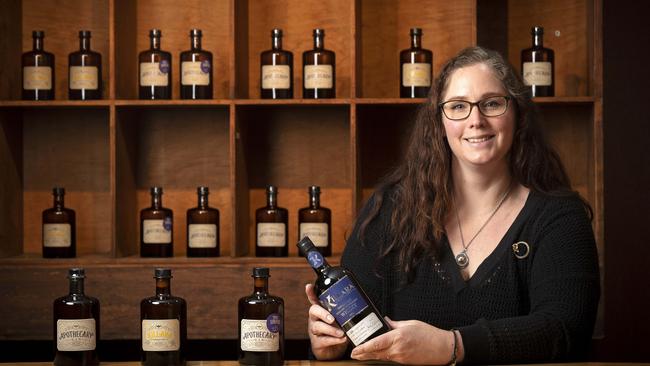

Add your comment to this story
To join the conversation, please log in. Don't have an account? Register
Join the conversation, you are commenting as Logout
Swansea’s Indian gem makes welcome return for summer
Head to Swansea. Order everything. Thank me later – as you won’t want to miss out on this terrific little East Coast pop-up, writes Alix Davis
Elegance in every bite
A decade in, Fico shows how restraint can dazzle, pairing island produce with old‑world craft and a wine list that champions both classic and new‑wave makers